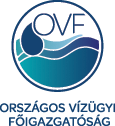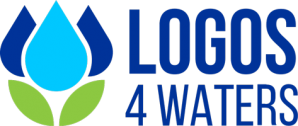Partners
The’Municipalities as integrators and coordinators in adaptation to climate change’ LIFE16 CCA/HU/000115 project (abbreviation: LIFE-MICACC) is implemented through a wide-range partnership.
The coordinating beneficiary is the Ministry of Interior of Hungary. The associated beneficiaries: Municipality of Bátya, Municipality of Püspökszilágy, Municipality of Rákócziújfalu, Municipality of Ruzsa, Municipality of Tiszatarján, Association of Climate-Friendly Municipalities, General Directorate of Water Management, PANNON Pro Innovation Services Ltd. and the WWF World Wide Fund for Nature Hungary Foundation.
Ministry of Interior of Hungary (HU MOI)
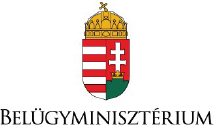
In Hungary water management, water protection and disaster prevention, which closely relate to climate change, fall within the scope of the Ministry of Interior (MoI), what is also responsible for all the 3177 local governments. MoI implements a number of projects (together with its background institutions) dealing with sustainable water management and prevention, forecasting, and risk assessment on disaster related to climate change.
MoI, as a public body that unites all the 3177 municipalities in Hungary, during the past years gathered experience in coordination (e.g. during the monitoring of local drinking water quality improvement projects). In the frame of this coordination activity MoI involved all the stakeholders, carried out consultations among them on a regular basis, where relevant problems, difficulties and also potential solutions were discussed at one place. In order to achieve our common goal (avoid infringement procedure) we set out guidelines together and maintained active assistance. These consultations gave good opportunity for better sharing of information and strengthened relations between the stakeholders. MoI intends to share this coordination method and experience with the Hungarian municipalities and also would like to encourage the development of their skills, abilities and competences on coordination. MoI wants to strengthen the role of municipalities, because well-organized, prepared and cooperative municipality are the key factors of implementing both national and EU policies most effectively. This is particularly important in relation to funding period after 2020.
For more information: http://www.kormany.hu/en/ministry-of-interior
Ministry of Interior, Coordination Office for Municipalities is responsible for the professional implementation of the project. For more information contact our project team at the following email address: life@bm.gov.hu
Municipality of Bátya
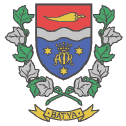
The Municipality of Bátya is located in the South-Plain region, in the sub-region of Kalocsa, in Bács-Kiskun county. The number of its permanent residents is 2140. The municipality has a medium level public service delivery system. The municipality operates a kindergarten accommodating 100 children, a primary school with lower and upper grades, health and social institutions, a library, a general practitioner's office, a dentist's office and a pharmacy. The social institution includes the health visitor service, the family support and child welfare services, home assistance and a club for the elderly.
There are eight civil organisations being active in Bátya. Joining TOP-2.3.1-15 (Regional and Settlement Development Operational Programme) the Municipality of Bátya submitted its proposal for the construction and development of dirt and covered drain ditches. The rainwater will be removed from the urban zone to the project site identified in the LIFE proposal in case of Széchenyi, Rákóczi, Vörösmarty and Mikes streets, each to be implemented within the framework of the project.
The municipality is going to be a pilot NWRM site. The municipality has an active coordinative role in preparing and implementing the pilot NWRM that will aim at the retention of the water and sediment of flash floods of a small stream, combined with a natural erosion control.
During the preparation the municipality prepares vulnerability assessment, technical plans, obtains permits, with the help of the other partners of the consortium. It will participate in the active communication of the result and sharing of the know-how gained from the pilot projects implementation in order to support the application of the tested NWRM prototypes at other site.
The municipality will be responsible for involving and coordinating the local stakeholders on the pilot side. Establishing a catchment level partnership for climate adaptation is also one of the tasks of the municipality. The municipality takes an active role in defining the catchment where the tested measures can be upscaled and replicated. In the frame of the capacity building a climate change adaptation (CCA) referent is going to help the municipailty’s work.
For more information: http://batya.ucoz.hu/
Municipality of Püspökszilágy
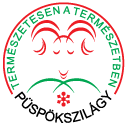
The Municipality of Püspökszilágy is located in the Central-Hungarian region, in Pest county. The number of its permanent residents is 726. Over the past decade the municipality has won several national and EU calls for proposals. The waste water drainage system of the settlement, the utilisation of renewable energies have been implemented but we have also won tools for the construction and operation of our forest school and for environment conscious education. The monitoring and maintenance of our proposals are also tasks to be performed by the municipality. In addition to the marketing, planning and public procurement of the proposals we have also implemented pilot projects in several cases. For example, we have won even for two sites the call for proposals for boilers launched by the Ministry of Interior. We have extensive experience in presenting projects not only in respect of implementation but also maintenance.
The municipality is going to be a pilot NWRM site. The municipality has an active coordinative role in preparing and implementing the pilot NWRM that will aim at the retention of the water and sediment of flash floods of a small stream, combined with a natural erosion control.
During the preparation the municipality prepares vulnerability assessment, technical plans, obtains permits, with the help of the other partners of the consortium. It will participate in the active communication of the result and sharing of the know-how gained from the pilot projects implementation in order to support the application of the tested NWRM prototypes at other site.
The municipality will be responsible for involving and coordinating the local stakeholders on the pilot side. Establishing a catchment level partnership for climate adaptation is also one of the tasks of the municipality. The municipality takes an active role in defining the catchment where the tested measures can be upscaled and replicated. In the frame of the capacity building a climate change adaptation (CCA) referent is going to help the municipailty’s work.
For more information: http://www.puspokszilagy.hu
Municipality of Rákócziújfalu
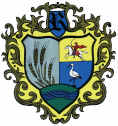
Rákócziújfalu is a settlement located in the Northern Great Plain region of Hungary, in Jász-Nagykun-Szolnok county, having cc. 2000 inhabitants. The duties of the municipality of Rákócziújfalu includes settlement planning and development, the protection of natural and built environment, housing management, water regulation and drainage, mantaining public cemetary, public roads and areas, managing fire service activities, public safety and sanitation. It also includes managing employment issues, insuring local childcare, healthcare and social care, organizing juvenile activities, supporting local sport and cultural activities, supporting actions to advertise healthy lifestyle. Rákócziújfalu has decades of experience to handle drainage problems and flood, also participated in flood defence activities cooperated with national authorities. The municipality has an eye on the negative effects of climate change for a couple of years, and also organizes discussions to cooperate with locals and farmers. There was a previous idea to invest in water retention in the municipality. That could not be developed due to the lack of finacial background.
The municipality is going to be a pilot NWRM site. The municipality has an active coordinative role in preparing and implementing the pilot NWRM that will aim at the retention of the water and sediment of flash floods of a small stream, combined with a natural erosion control.
During the preparation the municipality prepares vulnerability assessment, technical plans, obtains permits, with the help of the other partners of the consortium. It will participate in the active communication of the result and sharing of the know-how gained from the pilot projects implementation in order to support the application of the tested NWRM prototypes at other site.
The municipality will be responsible for involving and coordinating the local stakeholders on the pilot side. Establishing a catchment level partnership for climate adaptation is also one of the tasks of the municipality. The municipality takes an active role in defining the catchment where the tested measures can be upscaled and replicated. In the frame of the capacity building a climate change adaptation (CCA) referent is going to help the municipailty’s work.
For more information: http://www.rakocziujfalu.hu/index.php
Municipality of Ruzsa
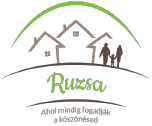
Ruzsa is a settlement located in the Southern Great Plain region, in Csongrád county, having appr. 2450 inhabitants. The municipality has implemented several projects for sustainable development and the utilisation of renewable energy sources. Solar panels have been installed on top of the municipality building and the health centre by EEOP (Environment and Energy Operational Programme) funding. We have participated in the drinking water quality improvement programme.
Nature conservation and the preservation of the natural environment are important objectives of ours. Every year we organise a bicycle competition with the purpose of promoting cycling. We organise single centre tours throughout the year which generate ever increasing interest. It is important to acquaint the population with the natural values because it is through this knowledge that they can identify with all the natural assets surrounding us which are to be conserved. Every year we also organise a rubbish collection action in the whole territory (both inner and external areas) of the settlement.
Our municipality is experienced in implementing projects and also has a staff whereby correct and experienced project coordination can be guaranteed.
The municipality is going to be a pilot NWRM site. The municipality has an active coordinative role in preparing and implementing the pilot NWRM that will aim at the retention of the water and sediment of flash floods of a small stream, combined with a natural erosion control.
During the preparation the municipality prepares vulnerability assessment, technical plans, obtains permits, with the help of the other partners of the consortium. It will participate in the active communication of the result and sharing of the know-how gained from the pilot projects implementation in order to support the application of the tested NWRM prototypes at other site.
The municipality will be responsible for involving and coordinating the local stakeholders on the pilot side. Establishing a catchment level partnership for climate adaptation is also one of the tasks of the municipality. The municipality takes an active role in defining the catchment where the tested measures can be upscaled and replicated. In the frame of the capacity building a climate change adaptation (CCA) referent is going to help the municipailty’s work.
For more information: http://www.ruzsa.hu
Municipality of Tiszatarján

Tiszatarjan is a village in the North-East region of Hungary with 1400 inhabitants and an area of 40.4 km2, administratively belonging to the disctrict of Mezőcsát in Borsod-Abaúj-Zemplén county. The area where Tiszatarján is located belongs to the Middle Tisza Region. Tiszatarján is 2 km away from the bank of River Tisza. The local municipality of Tiszatarjan is the key public administration body.Tiszatarján Municipality has broad experiences in a colourful range of projects funded from EU Operational Programmes mainly in the fields of social and infrastructure development (kindergarten retrofitting, new sewage system etc.) and have all the necessary administrative and management knowledge to handle an EU project.Tiszatarjan Municipality started to deal with climate change adaptation and nature resource management in 2007 under the framework of the European–wide One Europe More Nature Programme. In cooperation with WWF, Bükk National Park and the respective water management authority the municipality embarked on setting up a demonstration project in the floodplain on wetland and grassland through reducing invasive plants andmsemi-natural grassland livestock management. Tiszatarján is ready to share its experiences, and wants to improve its capacity to better build on the locally available natural resources for adaptation to climate change.
Tiszatarjan Municipality owns and provides the necessary pilot sites where natural water retention measures, as pilot actions are to be developed and tested in the partnership. Tiszatarjan Municipality also aims to engage the neighbouring municipalities and other local stakeholders into catchment wide climate change adaptation. Tiszatarjan Municipality has the authority and willingness to integrate the developed natural water retention measures into its local Municipal Spatial Plan and the Municipal Development Plan. Tiszatarjan Municipality will work on obtaining legal protection of local importance for the pilot project site.
The municipality is going to be a pilot NWRM site. The municipality has an active coordinative role in preparing and implementing the pilot NWRM that will aim at the retention of the water and sediment of flash floods of a small stream, combined with a natural erosion control.
During the preparation the municipality prepares vulnerability assessment, technical plans, obtains permits, with the help of the other partners of the consortium. It will participate in the active communication of the result and sharing of the know-how gained from the pilot projects implementation in order to support the application of the tested NWRM prototypes at other site.
The municipality will be responsible for involving and coordinating the local stakeholders on the pilot side. Establishing a catchment level partnership for climate adaptation is also one of the tasks of the municipality. The municipality takes an active role in defining the catchment where the tested measures can be upscaled and replicated. In the frame of the capacity building a climate change adaptation (CCA) referent is going to help the municipailty’s work.
For more information: http://www.tiszatarjan.hu
Association of Climate-Friendly Municipalities (AoCFM)
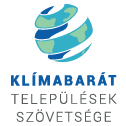
The Association of Climate-Friendly Municipalities has been founded in 2009 in order to ease and support the various climate change adaptation activities of (mostly) Hungarian municipalities and to prepare them and the regional authorities for the climate change-related challenges ahead. Our goal is to summon all the responsibly thinking mayors, leaders in a community and provide them the necessary tools, knowledge and assistance for successful actions in climate change adaptation and mitigation on a local and regional level.
The Association currently has 33+ member municipalities whose leadership, civil actors and inhabitants are determined to make their hometown and local community resilient and well-prepared to the impacts of climate change. Through regular meetings, conferences and workshops, they have the chance to share their experiences, the specific challenges they face and the actual steps and actions they make in order to overcome them.
Especially with regard to water management, cooperation and partnership with neighbouring countries is essential and unavoidable. The Association has member communities from beyond the borders of Hungary, but still in mostly Hungarian speaking territories.
As official supporters of the Covenant of Mayors movement, we are determined to use our connections and events to make more and more communities aware of the importance of having specific goals set to them (like significantly reducing their GHG emissions), investing in actions that help their community become more resilient to the impacts of climate change and to educate their citizens so that they can increase the impact of their actions by significant community involvement. Through the planned trainings, lectures, roadshows, study trips and publications, the Association wishes to contribute to the success of the present LIFE program greatly.
For more information: http://www.klimabarat.hu
General Directorate of Water Management (GDWM)
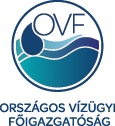
The General Directorate of Water Management (hereinafter: GDWM) is a central budgetary body reporting to the minister responsible for managing the water management bodies (minister of the interior).GDWM's operation covers the whole area of the country. At present GDWM employs appr. 200persons. A significant part of its qualified professional staff is made up of the representatives of the various water management professions and the staff of the project office carrying out the water management projects. This means that the framework of the General Directorate's activity is ensured by the cooperation of numerous professions and technical areas, including engineers, hydrologists, economists and IT specialists. GDWM controls, coordinates and supervises the professional activity of the regional water management directorates (hereinafter: RWMD) and takes part in developing the strategic objectives of the RWMDs. GDWM has the right to full inspection of the management activity tasks of the RWMDs, performs the water damage protection tasks.
GDWM performs the national control of the hydrographic activity and also the task of inspection ensuring the uniform nature of the hydrographic activity. GDWM performs the tasks of operating and developing at national level the Water Management Information System, being a uniform water management register. GDWM performs the water status assessment, public utility water supply and waste water management. GDWM performs the tasks related to the coordination of international water management relations, water management project planning implemented with the use of the various European Union funds and the tasks related to the implementation of central, call-for-proposals based and priority government projects implemented with the use of the funds. GDWM controls the maintenance, operation, reconstruction and development of surface waters, water courses, canals, water management systems and flood protection facilities to be managed by the RWMDs.
For more information: http://ovf.hu/
PANNON Pro Innovation Services Ltd. (PANNON)
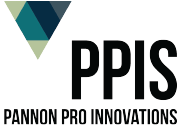
PANNON Pro Innovations Ltd. /PPIS/ is a private consultancy providing a wide range of project and innovation management activities related to sustainability, climate change, energy and the bioeconomy. As a full-scale innovation management agency on a mission to make ideas work, PPIS is bringing promising R&D developments to market. As a strategic consultancy dedicated to low carbon economy transition PPIS supports its clients to become innovative and resilient. PPIS is aiming to become a thematic point of reference and center of excellence in Hungary and in South Eastern Europe, providing innovation management services through a unique pool of experts and subcontractors. We bring together decades of professional experience in planning and implementing small- and large-scale innovation projects related to sustainability, climate change, energy, industrial symbiosis and developing the bioeconomy. The company has activities in sustainability advisory, business model planning, innovation/project management and incubation.
PANNON is an affiliated partner of Climate-KIC (Knowledge and Innovation Community), which is one of the main innovation initiatives of the European Union related to climate change.
For more information: http://ppis.hu/hu
WWF World Wide Fund for Nature Hungary Foundation (WWF)

WWF is the world’s largest and one of the most respected independent environmental organisations. Its mission is to stop the degradation of the planet's natural environment and to build a future in which humans live in harmony with nature, by conserving the world's biological diversity; ensuring that the use of renewable natural resources is sustainable and promoting the reduction of pollution and wasteful consumption.
WWF has established its office in Hungary in 1991. The three main focuses of WWF Hungary’s work are freshwater, forests and climate change. Our work aims at i) the improvement of the national and EU legal, political and economic environment and making it more favourable for the conservation of biodiversity ii) improvement of and making a contribution for the ecological status of species and habitats in Hungary and on European level and iii) the sustainable use of natural resources.
WWF has several years of experience in EU funded projects regarding conservation and restoration of habitats (grasslands, wetlands, forests), nature-based sustainable land management, protection of species, climate change adaptation and renewable energy startegies.
WWF made technical contributions to the National Action Plan for Renewable Energy 2010-2020, 2030 climate and energy framework proposal, the 2050 Energy Roadmap and the 2050 Climate Roadmap, the 1st and 2nd River Basin Management Plans, the Flood Risk Management Plan.
Besides advocacy and fieldwork we put emphasis on communication. We are raising awareness through communication campaigns (like Earth Hour), publications, trainings, citizen’s forums and professional dialogues.
WWF Hungary has a good working relationship with the different (sometimes opposing) stakeholders, professionals, NGOs and public officials in the field of water management, forestry, territorial development, climate change and energy within Hungary and, thanks to the WWF network, also reach out to European level and beyond.
For more information: http://www.wwf.hu





